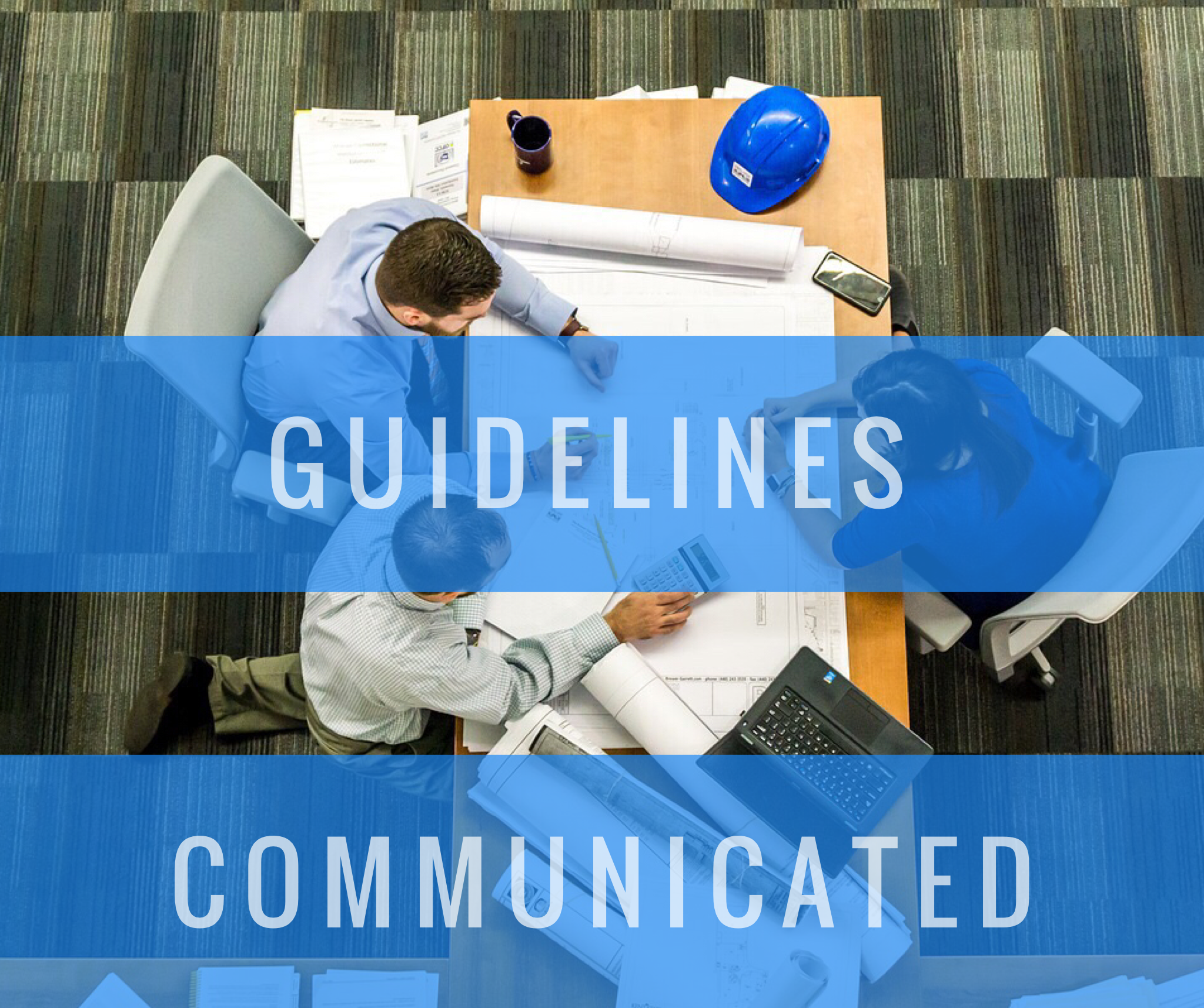Think about how many times you gave a client a discount on their first visit and the expectation then became that they receive a discount every time? This discount only applies to the first purchase for first-time customers.
Have you ever seen a client on the weekend (which isn’t what you would typically do) and then they expect you to be available on all other weekends?
When it comes to your staff, do they know what is expected of them, what’s seen as working at a level that is at your expectations or below or above them?
Guidelines can be set in a business to ensure that values and the direction of the business are instilled in the day to day activities that go on. No guidelines are right or wrong however those choosing to partake in your business whether that be from a staff or client/customer perspective it’s best to communicate the business guidelines where applicable to ensure the working relationship is one that flows with a common understanding.
Communication of guidelines can be either verbal or written or both. Written can be formal in a form of a contract or it can be informal through your marketing material (like your website where the terms and conditions are visible) or displayed in your workplace. They can also be written in the form of policies.
Verbal communication can be give to someone before they engage your services or purchasing your product. For example, the other day I had someone reach out and ask for an initial consultation with me (which I do complimentary) where I said yes. Then he asked if I can do this on the weekend, where I said no. There was no hesitation in me answering him because I have set guidelines in how I run my business. He respected that and we arranged the consultation on a weekday.
Thinks about what you do in your business and when it comes to answering questions do you do it immediately or do you hesitate? If you find yourself hesitating this could be a sign that guidelines have not been set yet.
Here are more scenarios that can present themselves in business;
- From a client / customer
Can I have a discount?
Can I call you on the weekend?
Can I come and pick up my products at 7 pm? What are your standard operating hours?
Can I only receive your service for 1 month instead of 12 months?
Can you also do this for me? Is what service they requested within the scope they signed up for? A client of mine who is a consultant was working with an agency to help them on a project which she scoped out and the agency agreed to. While working with them their system went down and they know my client could help them out. Before she said yes to helping them, she made it clear that the new work they requested was outside the scope of the current agreement and that there would be an additional fee to the original agreement they had in place. Once this was made clear the agency agreed to get her on board for the new work.
- From staff
Can I work back today so I can leave early tomorrow?
Can I submit the finance report a week past the normal due date?
Can I get a new supplier for a material we use in our product?
Can I take the company vehicle?
Am I doing a great job? Having guidelines such as Key Performance Indicators (KPIs) or targets set up will allow them to answer this question themselves.
Will I get that promotion to that role I applied for? Having regular communication through the year through the quarterly performance review with your staff will have your staff well aware beforehand what they need to do to be successful for that role, therefore no surprises when it comes to the job being filled with the best candidate.
In your business right now do you have clear guidelines or policies?
EmpowerBeyond – Business Performance Solutions, focusing on people, process, products and services and improving productivity and cash flow www.empowerbeyond.com.au


